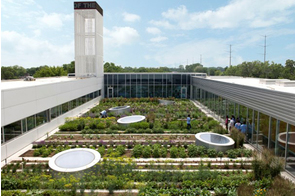Cameroon to boost agriculture, infrastructure, income with AfDB loan

Summary
The AfDB financing will support Cameroon’s Agricultural Value Chain Development Project.
The African Development Bank (AfDB) has approved a $96 million (89.291 million euros) loan to finance the development of agriculture in Cameroon.
According a statement, the AfDB financing will support Cameroon’s Agricultural Value Chain Development Project (AVC-DP), which seeks to improve the competitiveness of three targeted crop sectors: oil palm, plantain and pineapple.
The project will be implemented over five years at a total cost of about $125 million (115.081 million euros), with the AfDB providing 77.6 percent funding, the Cameroonian government 21.5 percent funding, and beneficiaries 0.9 percent funding.
The AVC-DP aims to eliminate constraints to the value chains of the three-targeted crops by boosting rural infrastructure, crop development, and youth entrepreneurship.
As part of its rural infrastructure development plan, the AVC-DP aims to construct 1,000 kilometres of rural roads, 30 warehouses, 15 rural markets, 30 kilometres of electricity networks, 30 drinking water supply (DWS) systems, and a quality control laboratory for agricultural products.
Under its crop sector development, the AVC-DP will support the establishment of processing units, institution building for farmer organizations, technical guidance, facilitation of the interface with service providers, training, research support for the production of quality seeds and seedlings, and the establishment of a crop sector development fund to finance value chains.
As for its youth agricultural entrepreneurship component, the AVC-DP plans to deliver nearly 600 businesses in the agro-business sector for approximately 1,500 young graduates (40 percent of them women) as well as ensure access to credit.
An estimated 242,000 people (50 percent of them women) are expected to benefit directly from the project. The project is expected to generate an estimated annual income increase of about $1,350 (CFAF 818,000) per household and an estimated annual income gains of about $10,000 (CFAF 6,000,000) for young entrepreneurs. The indirect beneficiaries are estimated at one million persons in rural communities.
Chibuike Oguh is Financial Nigeria's Frontier Markets Analyst
Related
-
Borlaug-Adesina Fellowship Programme opens application process
The Borlaug-Adesina Fellowship Programme seeks to support a new generation of agricultural scientists and innovators across ...
-
WTO agreement on fisheries subsidies enters into force
Adopted by consensus at the WTO's 12th Ministerial Conference in June 2022, the agreement's disciplines prohibit subsidies ...
-
Reforming Africa’s urban food markets
The scale and success of Africa’s response will depend on the effectiveness of today’s solutions for ...









